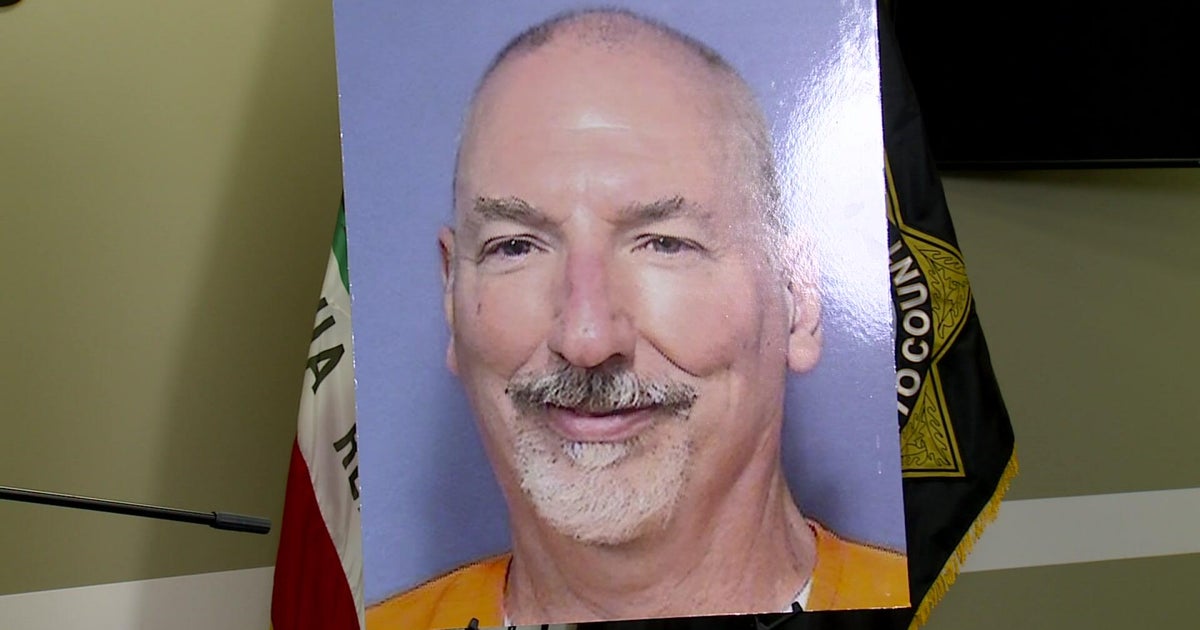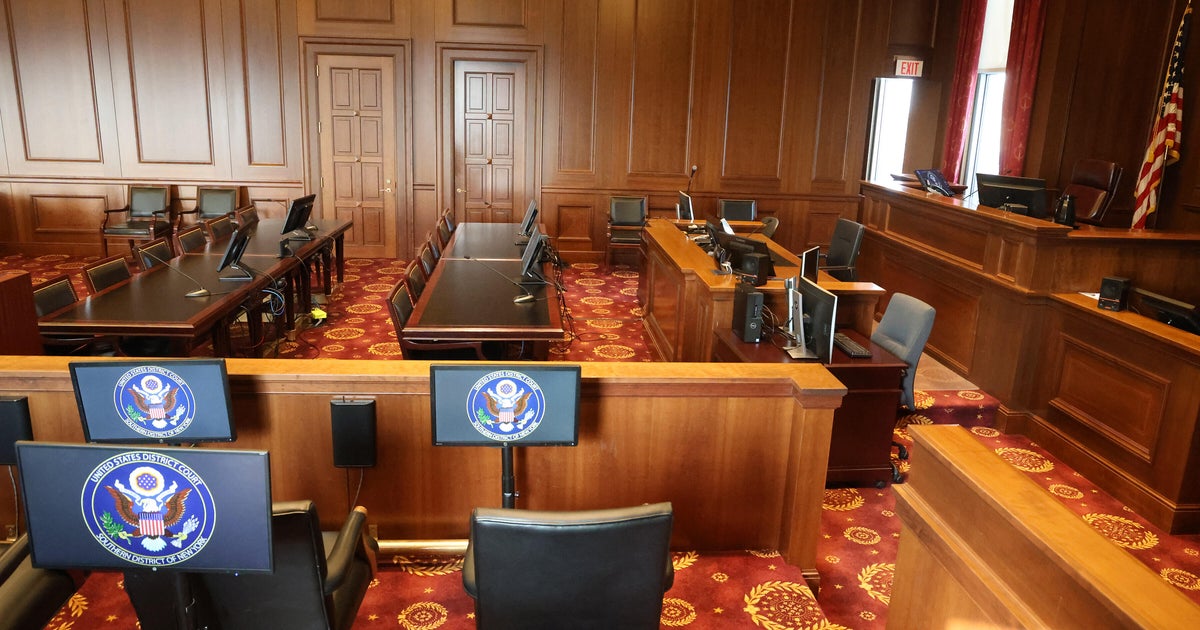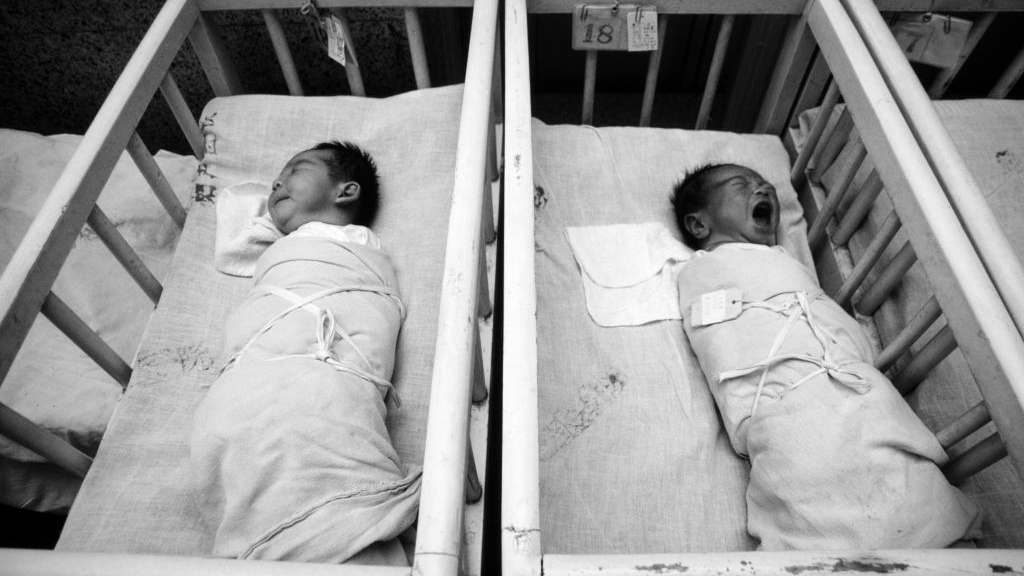Texas board denies clemency for Robert Roberson, set to be executed amid controversy over shaken baby syndrome diagnosis
HOUSTON — The Texas Board of Pardons and Paroles on Wednesday denied a request for clemency for Robert Roberson, who could be the first person in the U.S. executed for a murder conviction tied to the diagnosis of shaken baby syndrome.
The parole board voted not to recommend that Roberson's death sentence be commuted to life in prison or that his execution be delayed.
Roberson, 57, is scheduled to receive a lethal injection Thursday evening for the 2002 killing of his 2-year-old daughter, Nikki Curtis, in the East Texas city of Palestine. Roberson has long proclaimed his innocence.
"Even though the clock is ticking and we're just within about two days of his scheduled execution, he is a man of faith, and he remains hopeful that justice will prevail," said Vanessa Potkin, a lawyer with The Innocence Project which had been pushing Abbott and the state pardon and parole board to intervene. "Robert Roberson is absolutely innocent. We're in a unique position in his case that not only, do we know that the evidence used against is, has been disproven and is erroneous, but we actually know, medically why his daughter died, and she was suffering from two types of pneumonia, a fatal pneumonia."
Gov. Greg Abbott can only grant clemency after receiving a recommendation from the board. Abbott does have the power to grant a one-time 30-day reprieve without a board recommendation.
After hearing the Board's decision Wednesday, Gretchen Sween, one of Roberson's attorneys, alleged Roberson would not be on death row if it weren't for his autism, saying the night of his daughter's death, ER staff mistook his flatness for guilt and urged Abbott to grant a reprieve.
"We urge Governor Abbott to grant a reprieve of 30 days to allow litigation to continue and have a court hear the overwhelming new medical and scientific evidence that shows Robert Roberson's chronically ill, two-year-old daughter, Nikki, died of natural and accidental causes, not abuse," Sween said. "It is not shocking that the criminal justice system failed Mr. Roberson so badly. What's shocking is that, so far, the system has been unable to correct itself—when Texas lawmakers recognized the problem with wrongful convictions based on discredited 'science' over ten years ago. We have tried multiple times to utilize that law. Multiple times we have been turned away—without explanation or consideration of the new evidence ... We pray that Governor Abbott does everything in his power to prevent the tragic, irreversible mistake of executing an innocent man."
In his nearly 10 years as governor, Abbott has halted only one imminent execution, in 2018 when he spared the life of Thomas Whitaker.
The parole board's decision came a day after an East Texas judge on Tuesday denied requests by Roberson's attorneys to stop his lethal injection by vacating the execution warrant and recusing the judge who had issued the warrant.
Roberson's scheduled execution has renewed debate over shaken baby syndrome, which is known in the medical community as abusive head trauma.
His lawyers as well as a bipartisan group of Texas lawmakers, medical experts and others have urged Abbott to stop Roberson's execution, saying his conviction was based on faulty and now outdated scientific evidence related to shaken baby syndrome. The diagnosis refers to a serious brain injury caused when a child's head is hurt through shaking or some other violent impact, like being slammed against a wall or thrown on the floor.
Roberson's supporters don't deny that head and other injuries from child abuse are real. But they say doctors misdiagnosed Curtis' injuries as being related to shaken baby syndrome and that new evidence has shown the girl died not from abuse but from complications related to severe pneumonia.
Those protesting Thursday's scheduled execution included the police detective who helped send Roberson to death row, Brian Wharton.
"Let me just say, Robert is an innocent man," said Wharton. "But more than that, he is a kind man. He is a gentle man. He is a gracious man."
The American Academy of Pediatrics, other medical organizations and prosecutors say the diagnosis is valid and that doctors look at all possible things, including any illnesses, when determining if injuries were attributable to shaken baby syndrome.
The Anderson County District Attorney's Office, which prosecuted Roberson, has said in court documents that after a 2022 hearing to consider the new evidence in the case, a judge rejected the theories that pneumonia and other diseases caused Curtis' death.
Tuesday, State Representative Brian Harrison, a Republican from Waxahachie, posted on social media, "I want Texas to lead in basically everything. But executing potentially innocent people when it's possible no crime ever occurred is not one of them."
Prosecutors maintain Roberson's new evidence does not disprove their case that Curtis died from injuries inflicted by her father.
The parole board has recommended clemency in a death row case only six times since the state resumed executions in 1982. In three of those cases — in 1998, 2007 and 2018 — death row inmates had their sentences commuted to life in prison within days of their scheduled executions. In two of the cases — from 2004 and 2009 — then-Texas Gov. Rick Perry rejected the parole board's recommendation to commute a death sentence to life in prison and the two prisoners were executed.
In 2019, the parole board recommended a 120-day reprieve for Rodney Reed, just days before his scheduled execution. But the Texas Court of Criminal Appeals stayed Reed's execution before Abbott could take any action on the board's recommendation.
Robertson's lawyers have asked the U.S. Supreme Court to stay his execution "and consider whether the Texas Court of Criminal Appeals denied him due process by refusing to even consider the substantial new scientific and medical evidence of his actual innocence—without explanation."
A group of Texas Republican and Democratic state representatives are backing a subpoena Wednesday night to compel Roberson's testimony before the House Committee on Judiciary and Jurisprudence in an effort to delay the execution.
The motion was filed by Rep. Brian Harrison and seconded by Rep. Jeff Leach, both Republican Representatives in the Texas House. Seven other representatives voted in favor of it: Rep. Brian Harrison, Rep. Joe Moody, Rep. David Cook, Rep. Nate Schatzline, Rep. Drew Darby, Rep. Rhetta Andrews Bowers.
The Texas Department of Criminal Justice told CBS News Texas it has not seen the subpoena; however, "should one be issued by the legislative committee and after we have an opportunity to review it, the agency will consult with the Office of Attorney General on the appropriate next steps."



